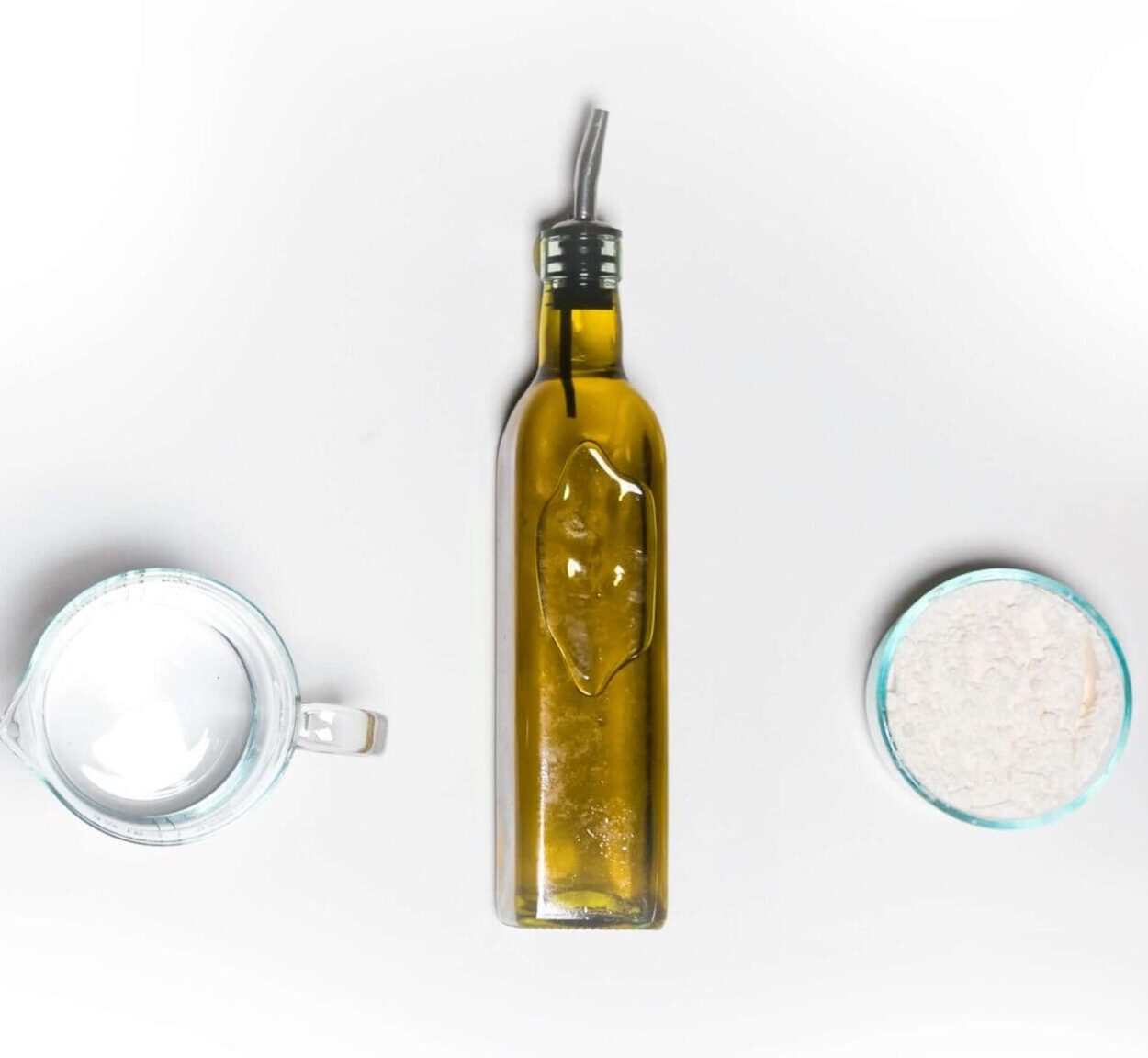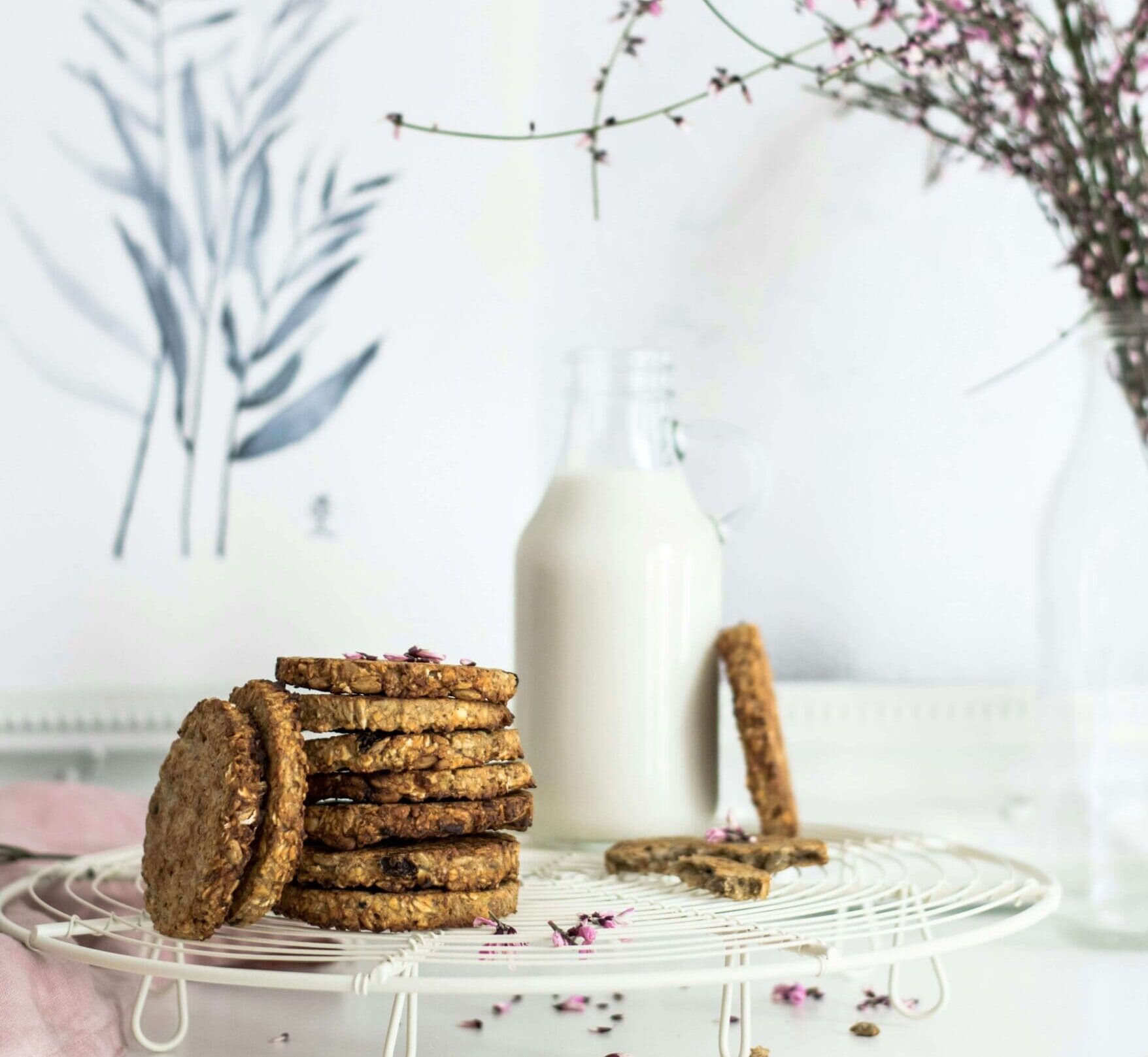Hello friend!
As a cancer dietitian, I understand the concerns that often arise around certain food ingredients (like carrageenan). It makes sense to be skeptical about what one is eating, especially when looking at a long, confusing ingredient list. If you are on the side of social media where food fears commonly circulate, you have likely heard/read that you should stay away from carrageenan. This food ingredient has sparked quite a bit of controversy lately. Let’s delve into what carrageenan is, address the ongoing debates, and explore its safety for cancer survivors.
Understanding Carrageenan
Carrageenan, derived from red seaweed, has been a staple food additive for decades. Its versatile role as a thickener, emulsifier, and stabilizer makes it a valuable ingredient in various products, including ice cream, chocolate milk, infant formula, and plant-based milk alternatives like soy, almond, coconut, and hemp. In vegan foods, it serves as a plant-based alternative to animal-derived gelatin, although it doesn’t provide any nutritional value.
The Controversy Unveiled
The controversy surrounding carrageenan stems from in vitro studies suggesting potential harm at specific exposure levels. When carrageenan mixes with an acid, it can produce another form that is not safe for human consumption. Some scientists speculate that food grade carrageenan has the potential to interact with the stomach acid and produce small amounts of the toxic form of carrageenan. Potential concerns range from bloating to irritable bowel disease, inflammation, food allergies and even colon cancer. Some consumers have advocated for its removal from food products, expressing concerns about its safety. However, extensive research, spanning regulatory agencies like the FDA, European Commission Health & Consumer Protection, and the Joint Food and Agriculture Organization of the United Nations/World Health Organization Expert Committee on Food Additives, consistently supports the safety of carrageenan for human consumption.
Safety Reassurance of Carrageenan
The expert committee, in its latest review, scrutinized 77 studies and found no evidence of toxicological concerns related to carrageenan. Moreover, a recent study in Food Toxicology and Chemistry highlighted that carrageenan does not cross the intestinal epithelium, induce oxidative stress, or cause intestinal inflammation. These findings challenge previous studies suggesting links to fasting hyperglycemia, inflammation, and cancer.
Navigating Consumer Concerns
Despite these reassurances, consumer fears persist, leading some food companies to remove carrageenan from their products. The National Organic Standards Board recommended its exclusion from organic food supplies, though this suggestion was not implemented by the USDA. This discrepancy underscores the challenge of finding suitable alternatives, potentially leading to the use of less-researched additives with unknown long-term safety profiles.
Recommendations for Cancer Survivors
For cancer survivors and those seeking a cautious approach, it’s crucial to be informed. While carrageenan has been consistently deemed safe, individual preferences may guide dietary choices. Recommending a reduction in packaged foods, thorough ingredient list checks, and, where possible, growing and preserving one’s food can be empowering choices. Understanding the scientific nuances and considering practical nutrition and health messages can help cancer survivors make informed decisions about including or excluding carrageenan from their diet.
Conclusion of Carrageenan
In conclusion, while the debate over carrageenan’s safety continues, the available scientific evidence supports its use as a safe food additive. Like all things, the dose makes the poison and nutrition is more about the overall pattern rather than one specific food ingredient. By staying informed and making mindful dietary choices, cancer survivors can navigate the landscape of food ingredients with confidence and a focus on overall well-being.
I know it’s easy to feel overwhelmed when navigating cancer and nutrition, but you don’t have to go through it alone. As your cancer dietitian, I take a collaborative and individualized approach so that you can crush your goals, feel your best, and truly thrive. Click here to fill out an application for my 1:1 Nutrition Coaching to see if we’re a good fit!
References
- European Commission Health and Consumer Protection Directorate — General. Opinion of the scientific committee on carrageenan. http://www.zusatzstoffe-online.de/pdf/scf_carrageen.pdf. Published March 5, 2003.
- Food and Agriculture Organization of the United Nations; World Health Organization. Safety evaluation of certain food additives. http://apps.who.int/iris/bitstream/handle/10665/171781/9789240693982_eng.pdf;jsessionid=F279EDA856DF8F4CF400CFDCC9BCD470?sequence=3. Published 2015.
- McKim JM Jr, Baas H, Rice GP, Willoughby JA Sr, Weiner ML, Blakemore W. Effects of carrageenan on cell permeability, cytotoxicity, and cytokine gene expression in human intestinal and hepatic cell lines. Food Chem Toxicol. 2016;96:1-10.
- Bhattacharyya S, Feferman L, Unterman T, Tobacman JK. Exposure to common food additive carrageenan alone leads to fasting hyperglycemia and in combination with high fat diet exacerbates glucose intolerance and hyperlipidemia without effect on weight. J Diabetes Res. 2015;2015:513429.
- Bhattacharyya S, Dudeja PK, Tobacman JK. Tumor necrosis factor alpha-induced inflammation increased but apoptosis is inhibited by common food additive carrageenan. J Biol Chem. 2010;285(50):39511-39522.
- Clemens R, Pressman P. Food gums: a primer on carrageenan. Nutr Today. 2017;52(5):258-260.
This blog is not intended as medical nutrition therapy, medical advice, or diagnosis and should in no way replace consultation or recommendation from your medical professional.



